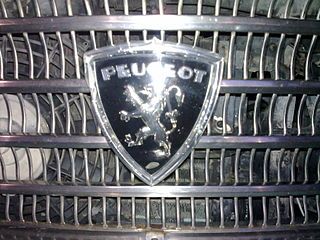Cars Running on Compressed Air
A reader points out:
French automaker Peugeot Citroen has invented a brand new air-powered hybrid. The ‘Hybrid Air’ system uses compressed air to move the car’s wheels when driving under 43 mph. Peugeot says the new hybrid system should get up to 141 miles per gallon of gas. Models should roll out as early as 2016. Man, we hope it’s not all a bunch of hot compressed air!
So the car is powered by an internal combustion engine (at ~ 20% efficiency) that compresses the air, which then suffers huge efficiency losses when it’s decompressed? That sounds like a terrible solution to me, and I find their claim dubious (unless the “car” weighs 80 pounds, or there is some other wild variable I’m not seeing).
This, btw, is what has people enthused over EVs; the efficiencies of charging and discharging batteries are in the 90s (as high as 99%), and the efficiency of the motor itself, i.e., the conversion from electrical to mechanical energy, is in the low 90s as well. Of course, the issue here is how the electricity is generated; if it comes from coal, that’s bad.


Compressing air has always been recognized as an extremely inefficient way to store and recover energy. In theory, there are ways to make it more efficient, but the heat exchangers necessary to do so would most likely be impractically heavy and bulky for automotive use.
Claims about cars that run on compressed air have been around for decades.
There are also claims about vehicles that use hydraulics to store energy. However, because liquids are almost incompressible, accumulators using springs or a gas would have to be used. Springs would probably be impractical and using a gas would result in the same inefficiencies as using compressed air directly.
Since electric hybrid technology has been well-proven, I wonder if it could be used to make a Stirling engine practical. Stirling engines have their problems; they tend to be heavier for their power output and it is difficult to change their power output quickly, but they are more efficient than IC engines. In a hybrid system, the engine could be smaller and lighter because it would have to have only a little more power than necessary to maintain an adequate cruising speed; the additional power required for acceleration and hill climbing could come from the battery. Also, in a hybrid system, the need to change the power output of the Stirling engine quickly could be eliminated.
I keep hearing these comments about where is the electrical energy coming from. Like was said in this article,”This, btw, is what has people enthused over EVs; the efficiencies of charging and discharging batteries are in the 90s (as high as 99%), as is the efficiency of the motor itself, i.e., the conversion from electrical to mechanical energy. Of course, the issue here is how the electricity is generated; if it comes from coal, that’s bad.”
You just aren’t paying attention, if the EV used more electricity than a gasoline powered car, there would be a concern. I say there shouldn’t be because when we take that Fossil Fuel powered car off the road there then is no need to refine the gasoline it won’t be using,from crude oil to propel that car. Now since it is well established that eight KWH of electrical energy is used in the refinery to produce each gallon of gasoline, if we conserve that gasoline we need not refine it thus releasing another Eight KWH of electricity for propulsion via recharging the battery pack of the plug-in auto and that will power the EV for in excess of 25 miles. No mater what the source because it is not added power generation but energy which the EV lets us conserve then utilize with our avoidance of using the gallon of crude oil.So long as an electric is considered replacing a combustion car and with the efficiency of the electric car being so high there will be no petroleum used and the electricity to propel the new electric car coming from the conserved energy of inhibited gasoline production there is no additional electric usage for the electric car. Also don’t tell me we need more power plants because we won’t. instead we have all that power which was used by oil refineries to use.
There is literally zero chance of there being a viable compressed-air car on the market. It’s a foolish idea that is destined to fail.
The issue at hand is the energy density of compressed air. If it takes several cubic feet to store the same energy that can be stored in 1 gallon (~0.1 ft3) of gasoline, then the idea will never work in the real world. You would need to consume far too much potential passenger and luggage volume to make room for more compressed-air volume (at least ~15-20 ft3), which would result in a commercially undesirable car that has absolutely no advantages over any other car (slower acceleration, no improvement in handling, etc…)
Some things are just bad ideas.